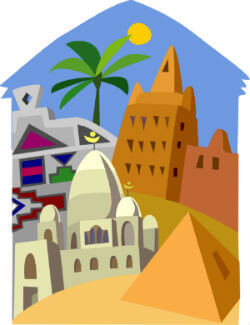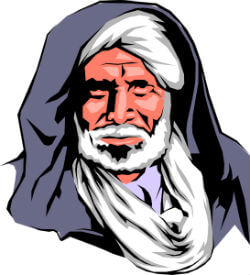English Reading Practice
English reading practice is very important if you want to improve your English reading skills.
This section contains articles on different subjects for you to read. Each article has contains an exercise too.
Click Here for Step-by-Step Rules, Stories and Exercises to Practice All English Tenses
So here are your next steps:
- Pick an article and start reading!
- Make sure you use a good
dictionary to
check the words you don't understand.
- Do the exercise for that specific article.
- Move forward to the next article!
Topics:
Human
Rights (videos, stories and exercises)
Videos, stories and exercises on the 30 human rights. For
example: The Right to Life, Freedom of Thought, Freedom of
Expression, and others. A video and story to illustrate each right.
Moral Stories (videos, stories and exercises)
Videos, stories and exercises on the 21 principles of The Way to Happiness. It is a common sense guide to
better living which has been distributed to more than 100 million
people in over 100 languages. It describes 21
principles to a better quality of life.
For
example: Love and Help Children, Respect the Religious Beliefs of
Others, Set a Good Example, Be Worthy of Trust, Safeguard and Improve
Your Environment, and others. A video and story to illustrate
each principle.
Drug Education Stories (videos, stories and exercises)
Videos, stories and exercises on common drugs and their dangerous hidden effects.
Countries (articles and exercises)
Articles and exercises about the countries of the world. What is
special about each country? What is its history? Interesting stories
and inspiring leaders from around the world.
Reading Comprehension Texts and Exercises
Reading practice on diverse topics and different comprehension exercises, with an emphasis on collocations.
Printable Worksheets (articles and exercises in PDF format)
Here is an example article. It is about the African country Morocco, and a beautiful story of its people.
Morocco
Morocco is a country in Africa. It is the most northwestern country. It borders the Atlantic Ocean to the west and the Mediterranean Sea to the north. It borders Algeria to the west.Folk stories are a very important part of Moroccan culture. These are stories that tell about the beliefs, traditions, and history of Morocco and the Moroccan people. From these stories, listeners can learn a lot about Morocco and what is important to Moroccans.
Moroccan Folk Stories
"Folk" means people from a particular country who have a certain way of life.There are many Moroccan Folk stories that are still told throughout Morocco today. These stories each teach lessons and give an insight to Moroccan culture. An "insight" is an understanding of something.
Many Moroccan folk stories have similar themes. A "theme" is an idea or topic that repeats itself. Travelling is an important theme in these folk stories as are animals, Islam, family, and respect. The stories always feature (talk about) the landscape of Morocco from the deserts to the mountains and the cities.

Water and housing are also very important themes in Moroccan folk stories. This is probably because both water and housing are hard to find, yet very important, in the desert.
One of the most loved Moroccan folk stories is called, "The Girl Who Lived With Gazelles." The story involves many of the themes typically used in Moroccan folk stories including family, Islam, animals, respect, and the desert.
The Girl Who Lived with Gazelles
There was once a young girl who lived with her father in the city.The father went away on a business trip. When he came back, the city's priest, who was a bad man, told him an evil lie about the girl. Though the lie was not true, the father believed the priest and banished the girl to the desert. "Banished" means sent away forever.

In the desert, the girl was adopted (taken care of) by a herd (group) of gazelles. A "gazelle" is a kind of animal similar to a deer or horse. She lived with the gazelles for many years.

One day, a handsome prince came by and saw the girl. The two fell in love and got married. Together, they had a son.
However, the prince's advisor was jealous of the love between the prince and the girl. Because of this, he stole the baby. The girl was so upset and frightened (scared) that she ran away to a village nearby. There she wore a man's cloths and found work.
Many years later, the village was holding a hunting competition. The girl's father, the priest, the prince, and the advisor were all there. The girl recognized them (knew who they were), but they did not recognize her.
At the competition, the girl stood up and told her life story to the crowd.
Everyone immediately recognized her. They understood she was telling the truth! The girl, the prince, and her father were all happily reunited (brought together again). The priest and advisor were banished to prison.
They soon learned that the son who had been stolen was actually living in the village. The girl and her husband, the prince, were then reunited with their son.
The prince was so happy that he passed a law that said that hunters could not hunt (kill) gazelles. From that day on, the gazelles were protected from harm.
Back to Topics
And now, practice:
Morocco - Exercises
Vocabulary Questions
1. What does "insight" mean?b) view
c) look at
d) listen to
2. What does "theme" mean?
b) idea that repeats itself
c) feature
d) family
3. What does "banished" mean?
b) found to be lying
a) send away forever
b) found to be telling the truth
Grammar Questions
1. From
these stories, listeners can learn _________ lot about
Morocco. b) the
c) an
d) that
2. Many Moroccan folk stories _________ similar themes.
b) had
c) had had
d) will have
3. The father went away _________ a business trip.
b) at
c) on
d) to
Comprehension Questions
1. What are some themes in Moroccan folk stories?_______________________________________________________________
2. Why did the girl's father banish her to the desert?
_______________________________________________________________
3. What did the prince do at the end of the story because he was so happy?
_______________________________________________________________
Full list of articles and exercises
Human Rights Back to Topics
Article 02 – Our Human RightsArticle 03 – Human Right #1: We Are All Born Free and Equal
Article 04 – Human Right #2: Don’t Discriminate
Article 05 – Human Right #3: The Right to Life
Article 06 – Human Right #4: No Slavery
Article 07 – Human Right #5: No Torture
Article 08 – Human Right #6: You Have Rights No Matter Where You Go
Article 09 – Human Right #7: We're All Equal Before the Law
Article 10 – Human Right #8: Your Human Rights Are Protected by Law
Article 11 – Human Right #9: No Unfair Detainment
Article 12 – Human Right #10: The Right to Trial
Article 13 – Human Right #11: We're Always Innocent Till Proven Guilty
Article 14 – Human Right #12: The Right to Privacy
Article 15 – Human Right #13: Freedom to Move
Article 16 – Human Right #14: The Right to Seek a Safe Place to Live
Article 17 – Human Right #15: Right to a Nationality
Article 18 – Human Right #16: Marriage and Family
Article 19 – Human Right #17: The Right to Your Own Things
Article 20 – Human Right #18: Freedom of Thought
Article 21 – Human Right #19: Freedom of Expression
Article 22 – Human Right #20: The Right to Public Assembly
Article 23 – Human Right #21: The Right to Democracy
Article 24 – Human Right #22: Social Security
Article 25 – Human Right #23: Workers' Rights
Article 26 – Human Right #24: The Right to Play
Article 27 – Human Right #25: Food and Shelter for All
Article 28 – Human Right #26: The Right to Education
Article 29 – Human Right #27: Copyright
Article 30 – Human Right #28: A Fair and Free World
Article 31 – Human Right #29: Responsibility
Article 32 – Human Right #30: No One Can Take Away Your Human Rights
Article 33 – Minds of Peace
Moral Stories Back to Topics
Moral Story Number 1: Take Care of Yourself
Moral Story Number 2: Be Temperate
Moral Story Number 3: Do Not Be Promiscuous
Moral Story Number 4: Love and Help Children
Moral Story Number 5: Honor and Help Your Parents
Moral Story Number 6: Set a Good Example
Moral Story Number 7: Seek to Live With the Truth
Moral Story Number 8: Do Not Murder
Moral Story Number 9: Don't Do Anything Illegal
Moral Story Number 10: Support a Government Designed and Run for All the People
Moral Story Number 11: Do Not Harm a Person of Good Will
Moral Story Number 12: Safeguard and Improve Your Environment
Moral Story Number 13: Do Not Steal
Moral Story Number 14: Be Worthy of Trust
Moral Story Number 15: Fulfill Your Obligations
Moral Story Number 16: Be Industrious
Moral Story Number 17: Be Competent
Moral Story Number 18: Respect the Religious Beliefs of Others
Moral Story Number 19: Try Not to Do Things to Others That You Would Not Like Them to Do to You
Moral Story Number 20: Try to Treat Others as You Would Want Them to Treat You
Moral Story Number 21: Flourish and Prosper
Drug Education Stories
Drug Education Story Number 1: Ecstasy
Drug Education Story Number 2: Marijuana
Drug Education Story Number 3: LSD
Countries Back to Topics
Afghanistan, Algeria, Australia, Austria, China, Egypt, France, Germany, India, Ireland, Iran, Iraq, Israel, Japan, Malaysia, North Korea, South Korea, Spain
Pakistan, Philippines, Russia, Saudi Arabia, Singapore, Somalia, Sudan,
United Kingdom, United States, Thomas Jefferson, Chinese Cooking
Printable Worksheets Back to Topics
Abraham Lincoln, Aristotle, Confucius, Eleanor Roosevelt, Mahatma Gandhi,
Martin Luther King Jr., Mother Teresa, Nelson Mandela, Plato, Socrates,
Sri Krishna, Buddha
English Reading Practice – an article about Cats.
English Reading Practice – an article about Fruit and Vegetables.
English Short Stories Back to Topics
There is another section of Really Learn English, where you can
read short
English stories for beginners. These are really
simple stories with illustrations.They are divided into several levels:
- Level
01 – Beginners
- Level
02 – Beginners Plus – Easy English Stories
- Level
03 – Elementary
- Level
4 – Elementary Plus
- Level 5 – Intermediate
To learn what really works for ESL beginners, read Help! My ESL Students Need More Vocabulary!
Get Updates, Special Offers, and English Resources
Download your FREE GIFT (the first two chapters of
English Short Stories Book and Workbook)
as soon as you join!

By submitting your email, you consent to receiving updates and newsletters from us and to the sharing of your personal data with third parties for the purposes of sending you communications. We will not spam you. You can unsubscribe at any time. For more information, please see our privacy policy.





